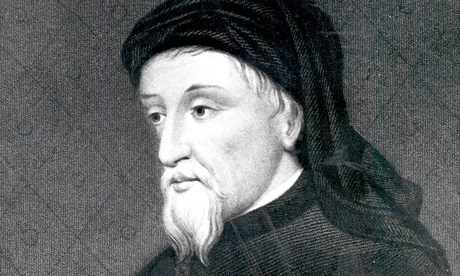
Over the course of this brisk, enjoyable book, the literary critic Paul Strohm attempts to answer a question that few historians or professors have ever come up with a satisfactory answer to: who was Geoffrey Chaucer? While the obvious answer is to try and discern hints of his personality from his self-parodying self-portrait in The Canterbury Tales, Strohm has the more original idea of focusing on 1386, a year in which Chaucer went from being a modestly successful bureaucrat in London, complete with grace-and-favour flat in Aldgate, to a jobless and homeless exile. How and why he managed to, in his famous phrase, “maken vertu of necessitee” is what concerns Strohm.
Rather like James Shapiro’s excellent study of 1599 and how it had an impact on Shakespeare’s life and work, Strohm’s book is as much social history as biography. He focuses on everything, from the lucrative and consequently eminently corruptible wool trade that Chaucer, in his guise as controller of customs, was responsible for, to the byzantine workings of the late-14th-century parliament. While Strohm does not ignore Chaucer’s literary achievements, he counsels against the lazy assumption that Chaucer’s presentation of himself in his poetry is autobiographical, arguing that “Chaucer is not a photorealist or social geographer”, and that he is allowed – like any writer before or since – to offer a creative interpretation of his own persona in a richly enjoyable fashion.
If Strohm’s engaging story has a flaw, it is perhaps that it attempts to cover too much detail in its relatively short span, and that while readers will come away knowing a great deal more about some aspects of life in the period, they might long for elucidation in other areas. Yet this fine book is an introduction, not a conclusion, and the greatest praise that can be offered is that it makes one want to revisit The Canterbury Tales, albeit perhaps not in Middle English.
The Poet’s Tale is published by Profile (£15.99). Click here to buy it for £12

